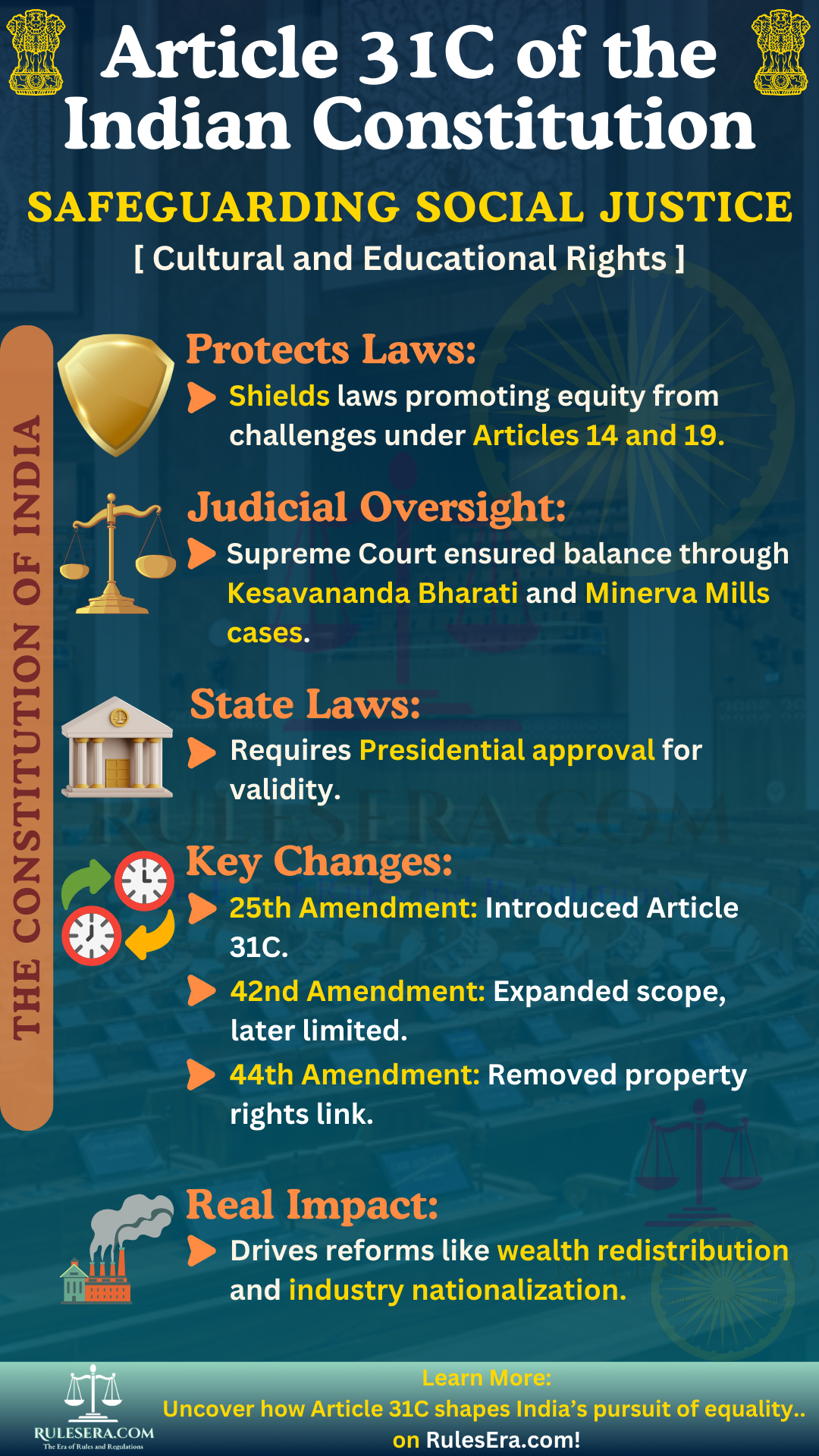Part III: Fundamental Rights
Article 31C: Saving of Laws Giving Effect to Certain Directive Principles

Article 31C safeguards laws that implement Directive Principles from being deemed void due to conflicts with fundamental rights, particularly Articles 14 and 19, subject to judicial review limitations.
Explanation
Article 31C was introduced to protect laws intended to promote social welfare and economic equity. It allows the state to prioritize Directive Principles over certain fundamental rights, ensuring that socio-economic reforms can proceed with reduced legal hindrance.
Key Aspects of Article 31C
- Protection of Social Welfare Laws: Laws that fulfill Directive Principles, especially Articles 39(b) and (c), are safeguarded from being invalidated on equality or freedom grounds.
- Judicial Limitation: While initially immune to judicial review, Supreme Court rulings have since restricted this immunity to prevent undermining the basic structure of the Constitution.
- Presidential Assent for State Laws: State-level legislation under Article 31C requires presidential assent, ensuring national oversight of such laws.
Real-Life Applications
Article 31C has facilitated laws aimed at equitable resource distribution, such as industry nationalization efforts. It has allowed these reforms to proceed without being challenged on the basis of fundamental rights, ensuring the state can prioritize economic equity.
Frequently Asked Questions (FAQs):
Laws that implement certain Directive Principles, especially those under Articles 39(b) and (c), are protected, provided they receive Presidential assent if state legislated.
Yes, in the landmark Kesavananda Bharati case, the Supreme Court ruled that Article 31C laws cannot override the Constitution's basic structure, ensuring judicial review remains applicable.